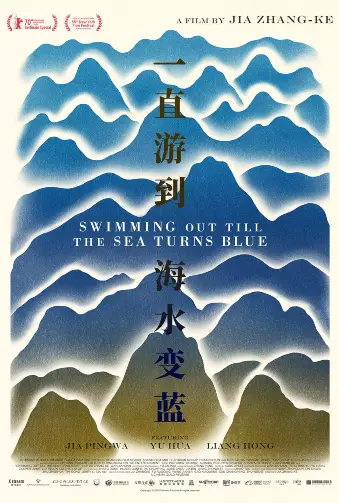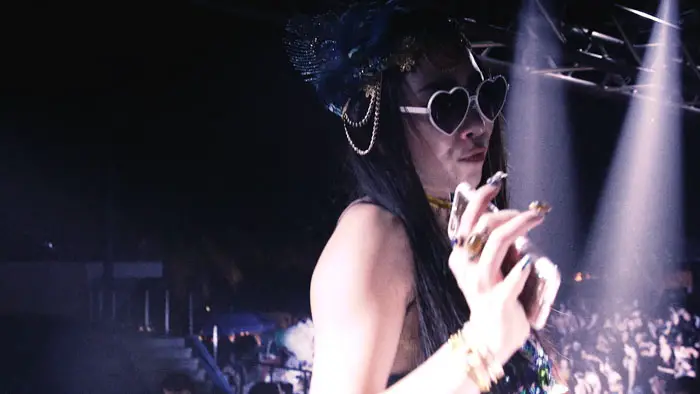
One of the powers of cinema is to learn about people, places, and cultures unbeknownst to us. Swimming Out Till the Sea Turns Blue is a documentary for those who have an interest and intellect for Chinese culture and the individuals who have made it essential for themselves and others. Directed and written by Jia Zhangke, who is considered one of the world’s most influential filmmakers, the film is also a work of art for many generations to come. The film is a beautifully executed educational experience for understanding China’s rich culture and societal change that has occurred since the 1950s.
Through known and celebrated Chinese writers and scholars, including Jia Pingwa, Yu Hua, and Liang Hong, the filmmaker provides an unexpected but straightforward detailed account of the decades of change in Shanxi Province, China, which is also Zhangke’s home. In addition, he interviews several individuals at a new literature festival. The event brought multi-generations of Chinese men and women together for lectures, symposiums, reading events, theatrical performances, and film screenings focusing on the importance of Chinese rural life. On a side note, Zhangke is a founder of the literature festival and an advocate for bringing people back to their villages through cultural awareness.

“…stories about eating, farming, matchmakers, and so many other fundamental elements of life…”
Swimming Out Till the Sea Turns Blue is divided into several chapters, each highlighting an element of living and focusing on images of people, sights, and places in Shanxi today, including the festival. The film covers a great deal of life and happenings at the Jia Family Village, where many of the subjects live or are connected to. From stories about eating, farming, matchmakers, and so many other fundamental elements of life, Zhangke offers insight and an understanding of how life was and is lived and community spirit. However, the homage to writer Ma Feng brings so much of the film’s purpose into focus. Much like a lens, the director’s interspersing of Ma Feng’s writings, expressed vocally, and on-screen provides the simplicity of understanding and meaning to all that we are watching unfold — looking back to move forward.
Although serious in nature and essential in meaning, this is a beautifully filmed and edited documentary. Director of photography Nelson Yu Lik-Wai has provided a movie as art and allows everyone’s expressions to expand upon the screen. He also utilizes certain angles to capture a moment and a talking head in ways that engage the viewer visually. In addition, there are close-ups and a variety of shots and pans to give a sense of place throughout much of the film, making the interviews appealing.
The writings of Ma Feng appear to have evoked much of the themes Zhangke captures in his beautiful story and its surface simplicity and deeper subtext. Although it is a bit lengthy, Swimming Out Till the Sea Turns Blue is a well-done and beautifully expressed film for understanding a people and their history.

"…a well-done and beautifully expressed film for understanding a people and their history..."



[…] post Swimming Out Till the Sea Turns Blue first appeared on Film […]